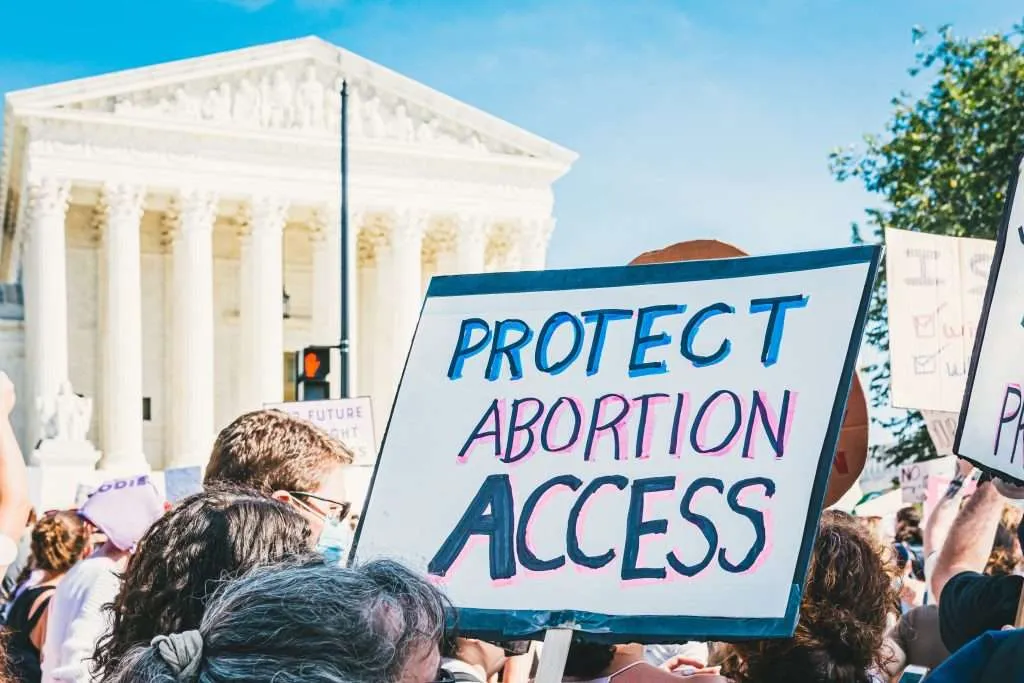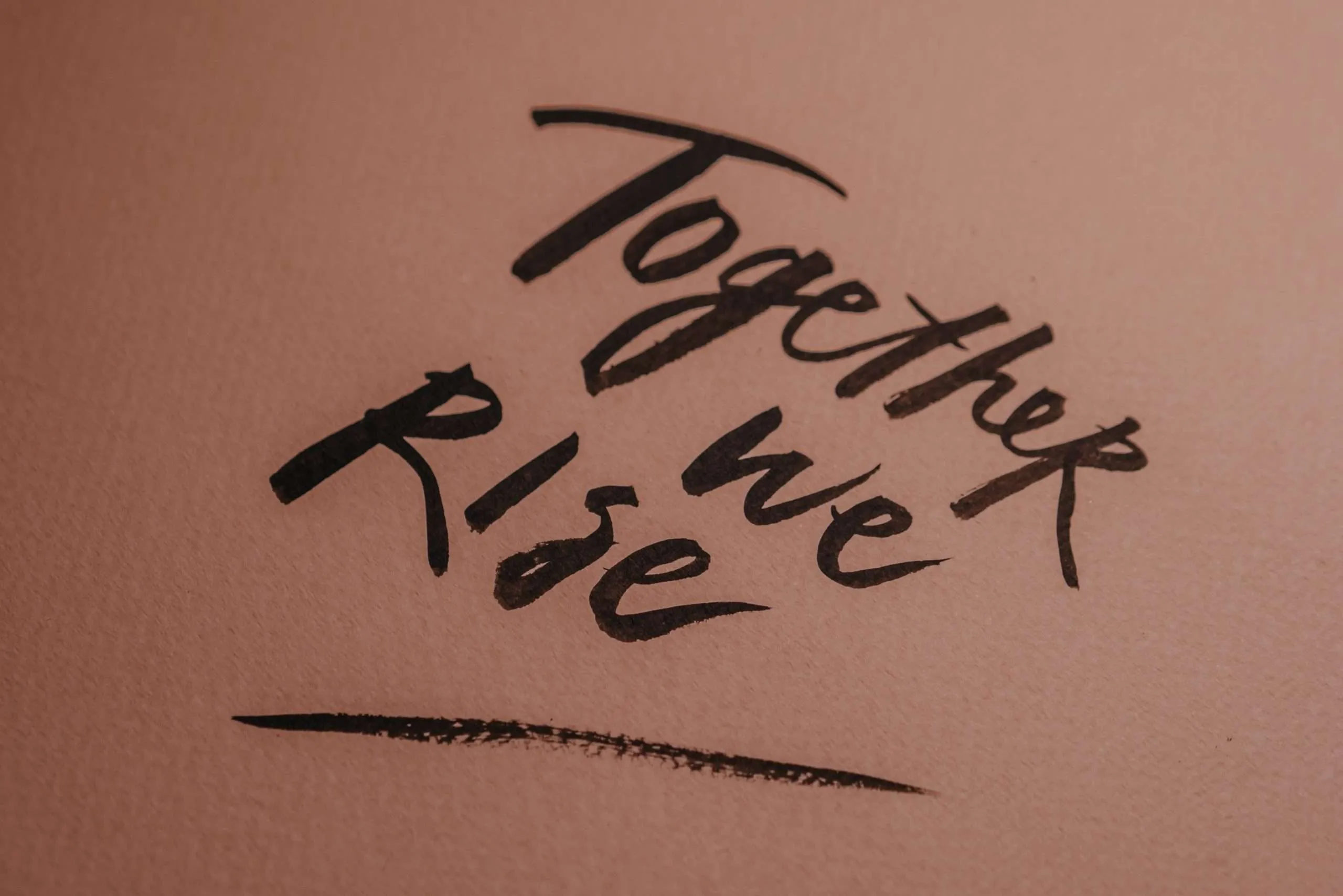What is Reproductive Justice and why is it the only way forward for women’s health?
As I sat reading the swaths of largely unwelcome discourse nearly eight months ago on the new Texas state law that not only bans abortion after six weeks but also encourages Texans to report their neighbors for making—or helping others make—an extremely difficult “choice,” I was overcome with emotions I could not even find a label for. Today, I sit reading about the leaked draft majority opinion from the US Supreme Court that makes the overturning of Roe v. Wade seem closer than ever. Only this time, I have the perfect label for what I’m feeling: defeat.
As a sociologist, when I’m overcome with emotions related to social issues and the discourse surrounding them, I do what I know best: turn to the literature, analyze the social context, and craft the argument I wished I was reading in all that unwelcome discourse.
On Gender and Choice
Below is an excerpt from a seminar paper I wrote as PhD student in a sociology of gender course. As I revisited my reflections on our readings on motherhood and family, I found comfort in them:
I found Rothman’s (2000) chapter on choice thought provoking. The arguments she articulated helped me understand many of my own ideas that I did not have the tools to fully comprehend yet. For example, I recently began to see the pro-choice abortion stance as overly simplified. That is, being pro-choice because I believe in a woman’s right to choose does not—or should not—simply translate into providing the option for abortion through legalization.
However, that is typically the effort of the pro-choice stance. Rothman (2000) provides the example of financial obligations of an abortion as constraining women’s choice to have an abortion. I would also argue that there are not sufficient resources available to make the choice of carrying a pregnancy to term either. Many women are likely to feel that abortion is their only choice in a society that does not support single mothers, impoverished mothers, mothers of color, teen mothers, etc.
As Risman (1998) explicitly notes, “choosing the best of bad alternatives is clearly not a choice at all” (p. 35). Additionally, Rothman (2000) argues that “all decisions are made in a context, and there is no objective place to stand and judge” (p. 407). With this argument in mind, perhaps we can never have a truly pro-choice stance on abortion because women, and men, will always be constrained by something contextual. However, what structural changes would we need to make to “provide women with [more] genuine choices about pregnancy” (p. 415)?
Ultimately, Rothman (2000) problematizes typical notions of choice by urging her readers to think deeply about what choices we really have, and the consequence of those choices.
My reflections on the course readings are the result of years of thinking deeply about the right to abortion, years of training as a sociologist and critical thinker, and years of witnessing these “choices” unfold—both second-hand and on a very personal level. What my reflections represent, on the other hand, is a framework known as Reproductive Justice.
What is Reproductive Justice?
According to SisterSong—”a Southern based, national membership organization; [whose] purpose is to build an effective network of individuals and organizations to improve institutional policies and systems that impact the reproductive lives of marginalized communities”—Reproductive Justice is “the human right to maintain personal bodily autonomy, have children, not have children, and parent the children we have in safe and sustainable communities.”
The term, perhaps unsurprisingly, was coined by a group twelve Black women, including activist and academic Loretta J. Ross, working within the pro-choice movement back in 1994. The theoretical framework known today by academics was introduced into the formal academic space by Black feminist scholars, whose role in this movement was no accident. In fact, the Reproductive Justice movement was born out of a resistance to the women’s rights movement of the time that was led by and represented wealthy and middle-class white women. Women who, even if they desired, could not fully appreciate the needs of women of color and other marginalized groups.
The Current Conversation on Reproductive Rights
As I look at the discourse on the unconstitutional (for now) abortion bans sweeping the Southern US states, I am not necessarily surprised that Reproductive Justice is not at the forefront. Rather, I am disappointed that nearly three decades after the introduction of this powerful movement into feminist spaces, our mainstream discourse is still widely misrepresenting what a pro-choice chance should really mean.
The Black feminist leaders of the movement had it right then, and they have it right now. It’s not that pro-choice politics shouldn’t be concerned about the legality and accessibility of abortion. It should go without saying that access to abortion is an incredibly important aspect of Reproductive Justice. But, to limit the extent of our political fights to abortion access leaves out an incredibly important human right when it comes to reproduction: the right to “parent the children we have in safe and sustainable environments.”

Moving Forward with Reproductive Justice
Pro-choice politics must evolve with Black feminists and leaders of the Reproductive Justice movement at the front of that evolution. Our political battles must include those that fight for adequate resources for parents that will allow them to parent their children with dignity; for access to affordable, reliable, and safe healthcare not only during pregnancy, but after; for communities that support parents through affordable childcare and paid parental leave.
These components of Reproductive Justice are non-negotiable, and the pro-choice movement should reflect that because, as sociologist Barbara Risman argued, “choosing the best of bad alternatives is clearly not a choice at all.” And if choice is really what we care about, the focus of the mainstream discourse must change, starting with a focus on Reproductive Justice and the fearless leaders who founded the movement.







